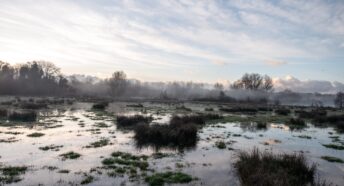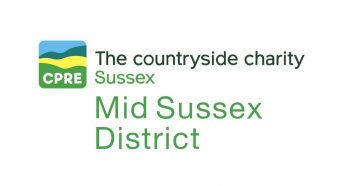London Resort developer accused of providing ‘insufficient’ information on traffic impact

The developer behind the proposed London Resort theme park has been accused of failing to provide enough information about the impact of increased traffic on road and rail in north Kent and London.
In damning submissions from leading transport organisations to the Planning Inspectorate, it is suggested that transport infrastructure could be overwhelmed by traffic from the development, on the Swanscombe peninsula.
Highways England says there has been “insufficient information” to allow conclusive statements on traffic impact, citing junctions 2 and 30 of the M25, the A13/A1089 junction and the A2/M2 east of the M25 as potential problem spots.
Transport for London, meanwhile, has slammed London Resort Holding Company’s lack of an “appropriate assessment methodology”, saying it could mask “significant impacts that must be mitigated”.
It said: “The failure to use appropriate modelling means that impacts on the rail and Underground network have not been assessed with any degree of certainty.
“The arbitrary assumptions about the scale of traffic that will use the north Kent lines risks ignoring potential impacts at their central London termini and on interchange flows at Abbey Wood (to the Elizabeth line).”
It also warned that the development could cause congestion on north Kent roads and lead to problems at east London road tunnels.
For its part, Network Rail was concerned about impact on stations close to the planned development as well as the effect on the Ebbsfleet Southern Link and HS1.
As if all that were not enough, the C2E Partnership feared that the scheme could take up land earmarked for a potential Crossrail extension to Ebbsfleet.
A list of Relevant Representations was published on Planning Inspectorate website in April after its deadline for comments had passed.
- For more on the London Resort scheme, click here
Tuesday, May 25, 2021
- A number of important documents have yet to emerge. For example, a rigorous transport plan and a finalised air-quality assessment. The latter is critical given that allocations at Teynham will feed extra traffic into AQMAs.
- There seems to be no coherent plan for infrastructure delivery – a key component of the plan given the allocations being proposed near the already crowded Junction 7.
- There seems to have been little or no cooperation with neighbouring boroughs or even parish councils within Swale itself.
The removal of a second consultation might have been understandable if this final version of the plan were similar to that being talked about at the beginning of the consultation process. It is, however, radically different in the following ways:
- There has been a major shift in the balance of housing allocations, away from the west of the borough over to the east, especially around the historic town of Faversham. This is a move that raises many concerns.
- A new large allocation, with accompanying A2 bypass, has appeared around Teynham and Lynsted, to which we are objecting.
- Housing allocations in the AONB around Neames Forstal that were judged “unsuitable” by the council’s own officers have now appeared as part of the housing numbers.
- Most of the housing allocations being proposed are on greenfield sites, many of them on Grade 1 agricultural land – a point to which we are strongly objecting.
Concerns about the rush to submit the plan
The haste with which the plan is being prepared is especially worrying given the concentration of housing in Faversham. If the town is to take a large amount of new housing, it is imperative that the policies concerning the area are carefully worked out to preserve, as far as possible, the unique nature of the town. The rush to submit the plan is likely to prove detrimental.
As Swale does not have a five-year land housing supply, it is open to speculative development proposals, many of which would run counter to the ideas contained in the current plan. Some are already appearing. This is a common situation, and one that, doubtless, is a reason behind Swale’s haste.
Our overriding fear, however, is that this emphasis on haste is ultimately going to prove counterproductive. This is because it is our view that the plan, in its current form, is unlikely to pass independent examination. We are urging Swale to listen to and act upon the comments being made about the plan and to return the plan to the council with appropriate modifications before submitting it to the Secretary of State.
Essentially, this means treating the current consultation not as the final one but as the ‘lost’ second consultation.
The consultation ends on Friday 30 April and we strongly urge residents to make their opinions known if they have not already done so.
Further information








